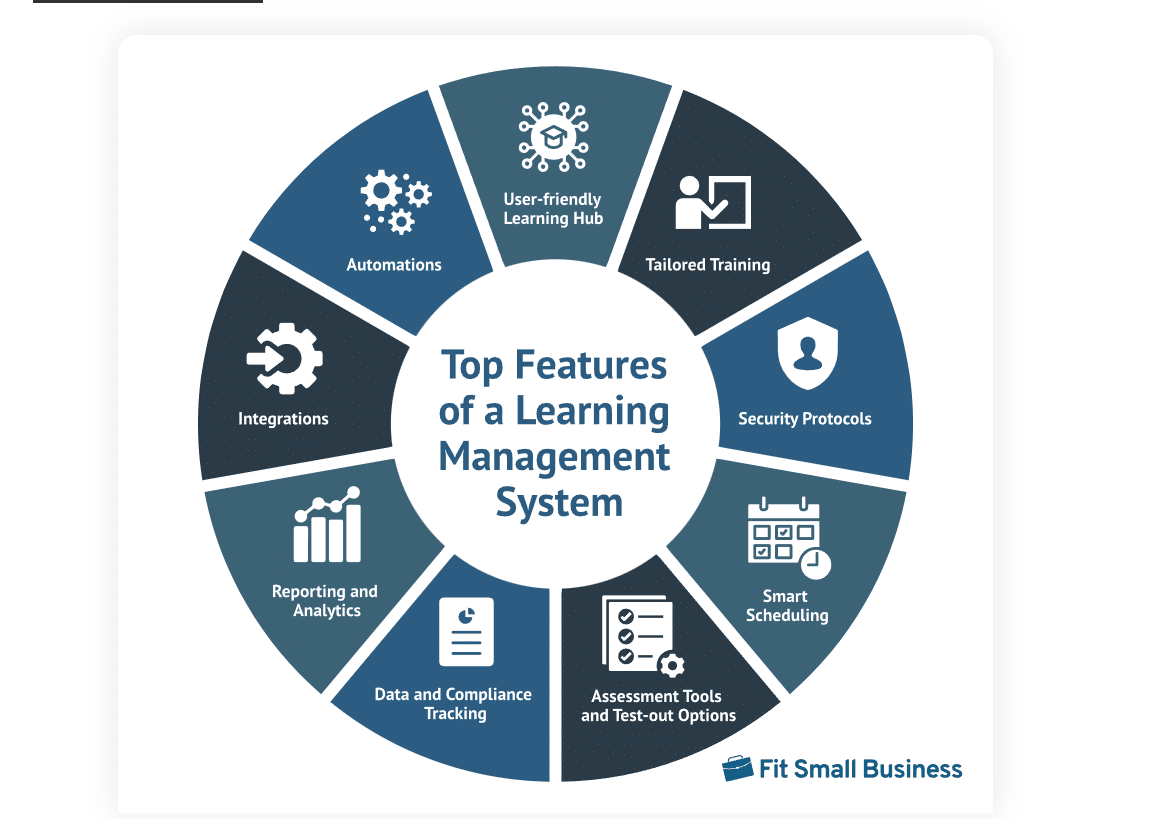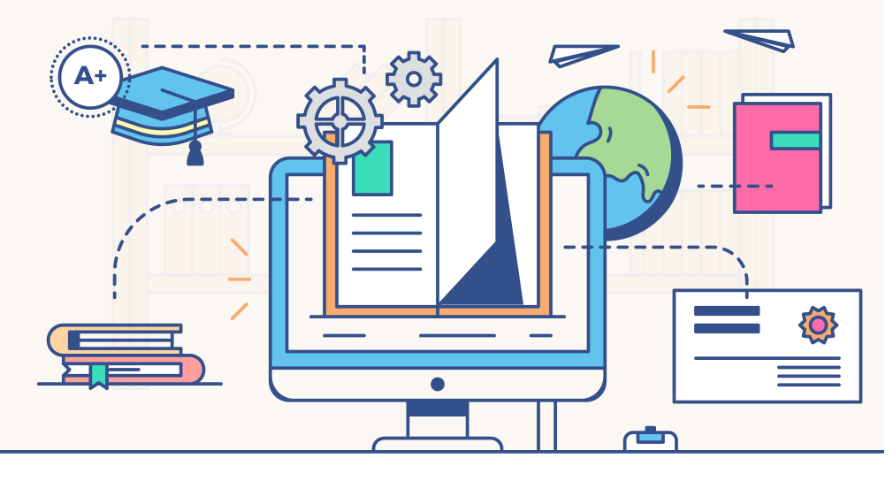LMS Singapore for Corporate Training: Boost Your Labor force's Abilities Efficiently
LMS Singapore for Corporate Training: Boost Your Labor force's Abilities Efficiently
Blog Article
Picking the very best Knowing Administration System for Your Organization
Selecting the optimum Discovering Management System (LMS) for your organization is a diverse choice that requires careful consideration of various components. From specifying exact understanding purposes that resonate with your strategic vision to evaluating customer experience, each element plays a pivotal duty in the overall performance of the system. In addition, understanding integration abilities and guaranteeing scalability for future requirements can not be forgotten. As companies pursue efficiency and development, the choice of an LMS becomes progressively significant. What are the important factors to consider that can influence your decision-making process?
Specify Your Learning Objectives
Specifying clear knowing purposes is crucial for the effective implementation of a Knowing Management System (LMS) These goals act as a roadmap, leading the growth of web content, assessments, and overall educational techniques within the LMS. By developing specific, quantifiable, achievable, appropriate, and time-bound (CLEVER) objectives, companies can guarantee that the learning experiences are lined up with their critical goals and learner requirements.
Efficient learning goals need to encapsulate what learners are anticipated to recognize or be able to do upon completion of a training course or training program. This clarity not just aids in material creation however additionally facilitates the evaluation of student development and the general efficiency of the LMS. Canvas Singapore. Moreover, well-defined goals allow stakeholders to evaluate whether the chosen LMS features and capabilities straighten with their academic goals.
Assess Customer Experience
Once learning goals have actually been developed, examining customer experience becomes a vital next action in picking a proper Understanding Administration System (LMS) User experience encompasses the total fulfillment and simplicity with which learners engage with the system. A properly designed LMS needs to assist in intuitive navigation, making sure that users can find training courses, products, and support easily.
To evaluate individual experience, think about carrying out functionality screening with a representative sample of end-users. This can provide important insights into how students engage with the platform. Key factors to assess include the LMS's user interface style, access functions, mobile compatibility, and the clarity of instructions supplied. User feedback is crucial; collecting surveys or carrying out interviews can expose typical pain points and locations for improvement.
Additionally, assess the availability of support sources, such as tutorials and assistance facilities, which can improve the customer experience. The responsiveness of consumer support is also essential; prompt assistance can substantially mitigate stress that individuals may run into. Ultimately, choosing an LMS that prioritizes user experience not only enhances the finding out process but additionally promotes greater involvement and complete satisfaction among students.

Evaluate Combination Capacities
Acknowledging the importance of seamless performance, assessing combination capabilities is essential when choosing an Understanding Administration System (LMS) An effective LMS ought to assist in interoperability with existing systems, such as Personnel Administration Solution (HRMS), Consumer Relationship Monitoring (CRM) systems, and other academic tools. This integration improves information flow, reduces management worries, and ensures a cohesive understanding setting.
When analyzing an LMS, take into consideration the sorts of combinations offered. Look for Application Shows User Interfaces (APIs), Single Sign-On (SSO) abilities, and pre-built adapters that enhance integration processes. Furthermore, validate the LMS's capability to incorporate with third-party devices, such as content collections or assessment platforms, which can dramatically enhance the knowing experience.

Think About Scalability and Adaptability
As organizations advance, the capability of a Discovering Administration System (LMS) to range and adapt comes to be progressively vital. A scalable LMS can accommodate development in customer numbers, program offerings, and material without jeopardizing efficiency or user experience. As businesses broaden, whether via enhanced employees, new areas, or diversified training demands, the LMS must flawlessly grow alongside these adjustments.
Versatility is similarly crucial; an effective LMS has to sustain various learning modalities, such as online, combined, and mobile learning. This flexibility enables organizations to react rapidly to reference emerging fads in training and development, guaranteeing that they can provide interesting and relevant discovering experiences - Learning Management System Singapore. In addition, the system ought to give customizable functions, enabling companies to tailor the LMS to their certain demands and branding
Moreover, an adaptable LMS ought to incorporate quickly with existing platforms and tools, helping with a cohesive discovering environment. Therefore, when choosing an LMS, it is vital to analyze not only its current capacities yet also its possible to adjust and grow in alignment with the organization's strategic goals and evolving learning requirements. This insight can considerably improve like it the long-lasting viability of the picked LMS.
Testimonial Expenses and Budgeting
When evaluating a Discovering Management System (LMS), reviewing expenses and budgeting is important to make sure that the financial investment lines up with the company's monetary abilities and strategic goals. Organizations must start by identifying the overall expense of possession, that includes licensing charges, execution costs, maintenance, and any added expenses such as training and technological support.
It is important to contrast various LMS choices, as prices versions can differ significantly amongst vendors. Some systems may supply a subscription-based version, while others might charge an one-time cost. Organizations needs to also think about the scalability of the LMS; as they grow, the expense structure may transform, impacting long-lasting budgeting.

Verdict
Picking an ideal Understanding Administration System (LMS) is necessary for accomplishing business knowing goals. Ultimately, the appropriate LMS serves as a critical tool in promoting an effective knowing atmosphere and driving organizational success (LMS SG).
Selecting the ideal Understanding Management System (LMS) for your company is a complex choice that requires mindful factor to consider of various aspects.Defining clear understanding goals is vital for the successful execution of a Discovering Management System (LMS)Once finding out goals have actually been established, evaluating individual experience comes to be a crucial next step find out here now in selecting a proper Learning Administration System (LMS)As organizations progress, the ability of an Understanding Management System (LMS) to range and adapt ends up being increasingly essential.Picking a suitable Understanding Management System (LMS) is crucial for accomplishing business learning goals.
Report this page